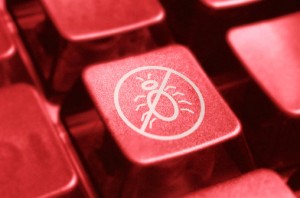Carry your entire medical history with you, in your pocket.
Never forget your doctor's appointment or to take your medication again.
Use your smartphone, cell phone, or PDA to access your records on the go!
Securely store your medical records such as X-Rays, test results and doctor's notes.
 A computer containing the sensitive medical records of more than four million patients of a major health care provider is one of the largest breaches of health care data in years. It wasn’t perpetrated by hackers, it wasn’t done by sophisticated electronic measures, and it didn’t happen because a computer failed to be adequately protected on its network.
A computer containing the sensitive medical records of more than four million patients of a major health care provider is one of the largest breaches of health care data in years. It wasn’t perpetrated by hackers, it wasn’t done by sophisticated electronic measures, and it didn’t happen because a computer failed to be adequately protected on its network.
It happened because someone threw a rock through a window and took the computer with the files on it.
Yes, simple burglary lead to the loss of millions of patient records. Further, we’ve learned that while the computer was password protected, nothing on it was encrypted. This means that the thief only needs a modicum of knowledge, the kind of knowledge most high school graduates understand in today’s modern age, to get to the records in question.
- By Kevin Hauser Submitted on November 26th, 2011
 Some physicians are reluctant to adopt or participate in personal health records with their patients. This seems odd, considering the obvious benefit that the PHR can have in patient care and involvement. So I asked a few doctors who are participating with our product to talk to their colleagues about what their fears might be.
Some physicians are reluctant to adopt or participate in personal health records with their patients. This seems odd, considering the obvious benefit that the PHR can have in patient care and involvement. So I asked a few doctors who are participating with our product to talk to their colleagues about what their fears might be.
Surprisingly, one answer was the most commonly given: time.
Specifically, doctors who are reluctant to adopt PHRs with their patients are afraid that the increased connectivity will mean they’ll be spending more time answering queries. It’s assumed that if patients are given an easier channel of access to speak with their doctor (via email, usually), they’ll make more requests of the physician.
- By medefile Submitted on November 17th, 2011
A recent press release from a law firm in Cleveland, Ohio says that electronic health records (and by implication, personal health records) will create more lawsuits for malpractice as patients (and their lawyers) get better access to information regarding patient care. This is ludicrous.
The logic behind this law firm’s premise is that with better access to information, a “potential goldmine of evidence for a medical negligence lawsuit” will be had. This goes two ways, though. It also means that the defense doctors, will have access to the same goldmine.
- By Kevin Hauser Submitted on November 3rd, 2011


